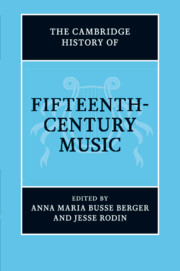Book contents
- The Cambridge History of Fifteenth-Century Music
- Series page
- The Cambridge History of Fifteenth-Century Music
- Copyright page
- Dedication
- Contents
- Figures
- Music examples
- Notes on contributors
- Acknowledgments
- Abbreviations
- Introduction
- Part I Historiography
- Part II Improvisation and composition
- Part III Humanism
- 13 Humanism and music in Italy
- 14 Fifteenth-century humanism and music outside Italy
- 15 Poetic humanism and music in the fifteenth century
- 16 Canterinoandimprovvisatore: oral poetry and performance
- 17 Liturgical humanism: saints’ Offices from the Italian peninsula in the fifteenth century
- Part IV Music and other arts
- Part V Music in churches, courts, and cities
- Part VI Religious devotion and liturgy
- Part VII Theory and practice
- Part VIII Sources
- Part IX Genres
- Part X Reception
- Index
13 - Humanism and music in Italy
from Part III - Humanism
Published online by Cambridge University Press: 05 July 2015
- The Cambridge History of Fifteenth-Century Music
- Series page
- The Cambridge History of Fifteenth-Century Music
- Copyright page
- Dedication
- Contents
- Figures
- Music examples
- Notes on contributors
- Acknowledgments
- Abbreviations
- Introduction
- Part I Historiography
- Part II Improvisation and composition
- Part III Humanism
- 13 Humanism and music in Italy
- 14 Fifteenth-century humanism and music outside Italy
- 15 Poetic humanism and music in the fifteenth century
- 16 Canterinoandimprovvisatore: oral poetry and performance
- 17 Liturgical humanism: saints’ Offices from the Italian peninsula in the fifteenth century
- Part IV Music and other arts
- Part V Music in churches, courts, and cities
- Part VI Religious devotion and liturgy
- Part VII Theory and practice
- Part VIII Sources
- Part IX Genres
- Part X Reception
- Index
Summary
- Type
- Chapter
- Information
- The Cambridge History of Fifteenth-Century Music , pp. 231 - 262Publisher: Cambridge University PressPrint publication year: 2015
- 2
- Cited by

